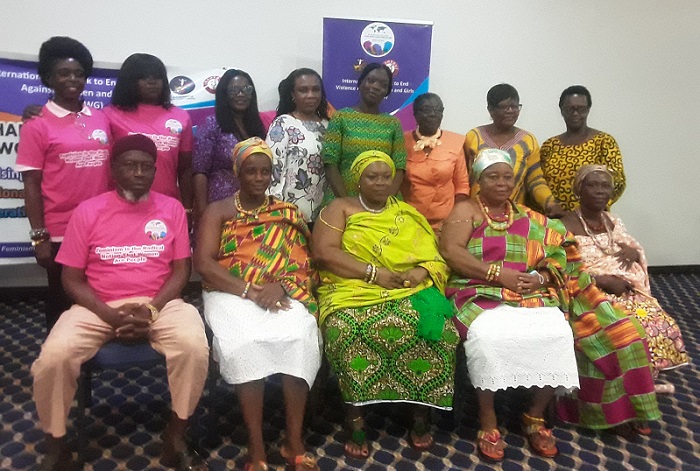A legal practitioner and gender-based activist, Mrs Bernice Sam, has called for more convictions for perpetrators of gender-based violence (GBV) against women and girls in the country.
According to her, low conviction rate of offenders of GBV in the country had contributed to a growing increase in cases of violence against women and girls.
Mrs Sam made the remarks during a national consultation forum to re-politicise violence against women and girls in Accra on Monday.
The programme organised by International Network to End Violence Against Women and Girls (INEVAWG) aimed to address inequality and violence against women and girls through a radical political approach.
Mrs Sam indicated that statistics showed that a large number of report received by Domestic Violence Units across the country showed that most perpetrators of GBV were mainly men as compared to women.
She said the number of convictions that were secured for the cases that went to court were low compared to the number of reports that were made.
“Admittedly some of the cases travel beyond the end of the reporting cycle however, when you take the situation year-on-year, you will realise that the conviction rates are very low and it’s quite worrying,” she added.
Mrs Sam said even though the Domestic Violence Units across the country and the Ministry of the Interior were doing a lot, however, the encouragement or expectations among Ghanaians, particularly women and girls, was to see more convictions to serve as a deterrent to others.
Sociologist at the University of Ghana- Legon, Professor Akosua Darkwa, speaking on the topic “Intersectional approaches to GBV”, stated that there was the need for a new approach to activism against GBV.
She highlighted that Ghana Demographic and Health Survey of 2008 showed that women who had tertiary education were less likely to experience physical violence than women with low education.
However, she indicated the fact that both women experienced same violence, it was important not to disaggregate that some women were better than others.
She advised organisations to be mindful of the different ways in which socio-demographic affected one’s GBV lifestyle.
Dr Amanda Odoi, Centre for Gender Research, Advocacy and Documentation, University of Cape Coast, for her part, said to help fight GBV, younger generations needed to recognise older generations and reach out to them with other relevant stakeholders to create awareness of GBV, and seek their support and cooperation towards the prevention and elimination of violence against women and girls.
The Projects Coordinator of WiLDAF-Ghana and a member of INEVAWG, Ms Gloria Kankam, called on the government to be proactive in the laws governing sexual gender-based violence and ensure that victims and survivors of rape and defilement were provided free medical treatment.
BY VIVIAN ARTHUR

